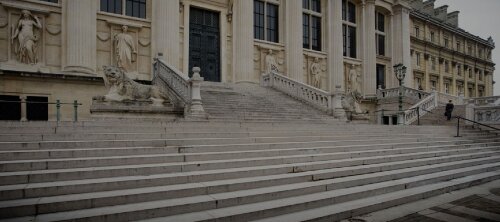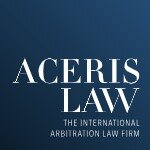Best Faith-Based Law Lawyers in Paris
Share your needs with us, get contacted by law firms.
Free. Takes 2 min.
List of the best lawyers in Paris, France
About Faith-Based Law in Paris, France
Faith-Based Law in Paris, France refers to the legal considerations and frameworks that allow individuals to practice their religious beliefs within the context of the country's legal system. This includes ensuring that the practices of various religious groups are respected while complying with French secular laws. France is known for its strong stance on laïcité, or secularism, which underscores the separation of church and state in public affairs. However, this coexistence often necessitates a specialized understanding of how faith-based practices can be integrated or challenged legally within this secular framework, particularly in areas like employment, education, and civil rights.
Why You May Need a Lawyer
There are several scenarios where you might require legal assistance related to Faith-Based Law in Paris, France. For instance, if you are experiencing discrimination in the workplace due to your religious beliefs, you might need legal help to protect your rights. Similarly, faith-based organizations may need advice on how to comply with French secular laws while maintaining religious practices. Parents facing challenges regarding religious education in public schools, as well as individuals seeking to resolve matrimonial issues within faith-based communities, may also find legal counsel valuable to navigate complex legal waters effectively.
Local Laws Overview
French law prioritizes secularism, shaping the way Faith-Based Law is practiced in Paris. Key regulations include the 1905 Law on the Separation of the Churches and the State, which underscores religious freedom while maintaining secular governance. The law prohibits religious symbols in public schools and by public servants, which can impact expressions of faith in educational or governmental settings. Additionally, the legal framework closely monitors religious organizations to ensure compliance with secular principles while recognizing their distinct customs.
Frequently Asked Questions
What is laïcité, and how does it affect religious practice in Paris?
Laïcité, or secularism, is a fundamental principle in France that ensures the separation of church and state. It affects religious practice by limiting visible religious symbols in public sectors and ensuring that public policies remain free from religious influence.
Can I wear religious attire at work or school in Paris?
While private environments may allow religious attire, public schools and government buildings prohibit such expressions to maintain secularism. Consult an employment lawyer to understand exceptions specific to your situation.
How are religious organizations regulated in Paris?
Religious organizations in Paris must operate under specific legal structures, such as associations under the 1905 law, and are subject to government oversight to ensure compliance with French secular laws.
How does the French legal system address religious discrimination?
France has anti-discrimination laws that protect individuals from being discriminated against based on religious beliefs, providing legal recourse for affected individuals.
What rights do parents have regarding religious education in Paris?
Parents have the right to opt for private religious schools for their children, although public education remains secular with no option for religious instruction.
How can I resolve a legal issue involving both civil and religious law?
It’s important to seek legal advice from professionals versed in both civil and religious law to navigate appropriately and ensure compliance with French regulations.
Can religious practices supersede French law in any circumstance?
No, in France, secular law takes precedence, and religious practices must conform to the legal framework established by the state.
How can I become legally recognized as a religious organization in Paris?
Religious groups must register as associations according to the 1905 law, adhering to specific guidelines and requirements set out by the government.
What happens if a conflict arises between secular duties and religious beliefs?
Conflicts are usually addressed by examining the specific circumstances and navigating solutions that respect both secular laws and religious customs, often requiring legal mediation.
How do marriage laws interact with religious traditions in Paris?
Civil marriage is the legally recognized form in France. Religious ceremonies can occur, but they don’t hold legal status without a civil registration, requiring a balance of both practices for those who choose religious weddings.
Additional Resources
For more information and assistance, consult organizations such as the French Council of the Muslim Faith (CFCM) for Muslim concerns, the Conference of French Bishops for Catholic issues, or equivalent associations for other religious communities. Seeking advice from government bodies like the Défenseur des Droits (Defender of Rights) can also be beneficial.
Next Steps
If you find yourself in need of legal guidance in Faith-Based Law in Paris, consider the following steps: Identify the issue and potential needs, research and consult a reputable lawyer specializing in Faith-Based Law, and gather relevant documentation or evidence pertaining to your case. Contact professional legal services or law firms experienced in Faith-Based Law to ensure you are well-represented and your concerns are adequately addressed within the legal system.
Lawzana helps you find the best lawyers and law firms in Paris through a curated and pre-screened list of qualified legal professionals. Our platform offers rankings and detailed profiles of attorneys and law firms, allowing you to compare based on practice areas, including Faith-Based Law, experience, and client feedback.
Each profile includes a description of the firm's areas of practice, client reviews, team members and partners, year of establishment, spoken languages, office locations, contact information, social media presence, and any published articles or resources. Most firms on our platform speak English and are experienced in both local and international legal matters.
Get a quote from top-rated law firms in Paris, France — quickly, securely, and without unnecessary hassle.
Disclaimer:
The information provided on this page is for general informational purposes only and does not constitute legal advice. While we strive to ensure the accuracy and relevance of the content, legal information may change over time, and interpretations of the law can vary. You should always consult with a qualified legal professional for advice specific to your situation.
We disclaim all liability for actions taken or not taken based on the content of this page. If you believe any information is incorrect or outdated, please contact us, and we will review and update it where appropriate.















